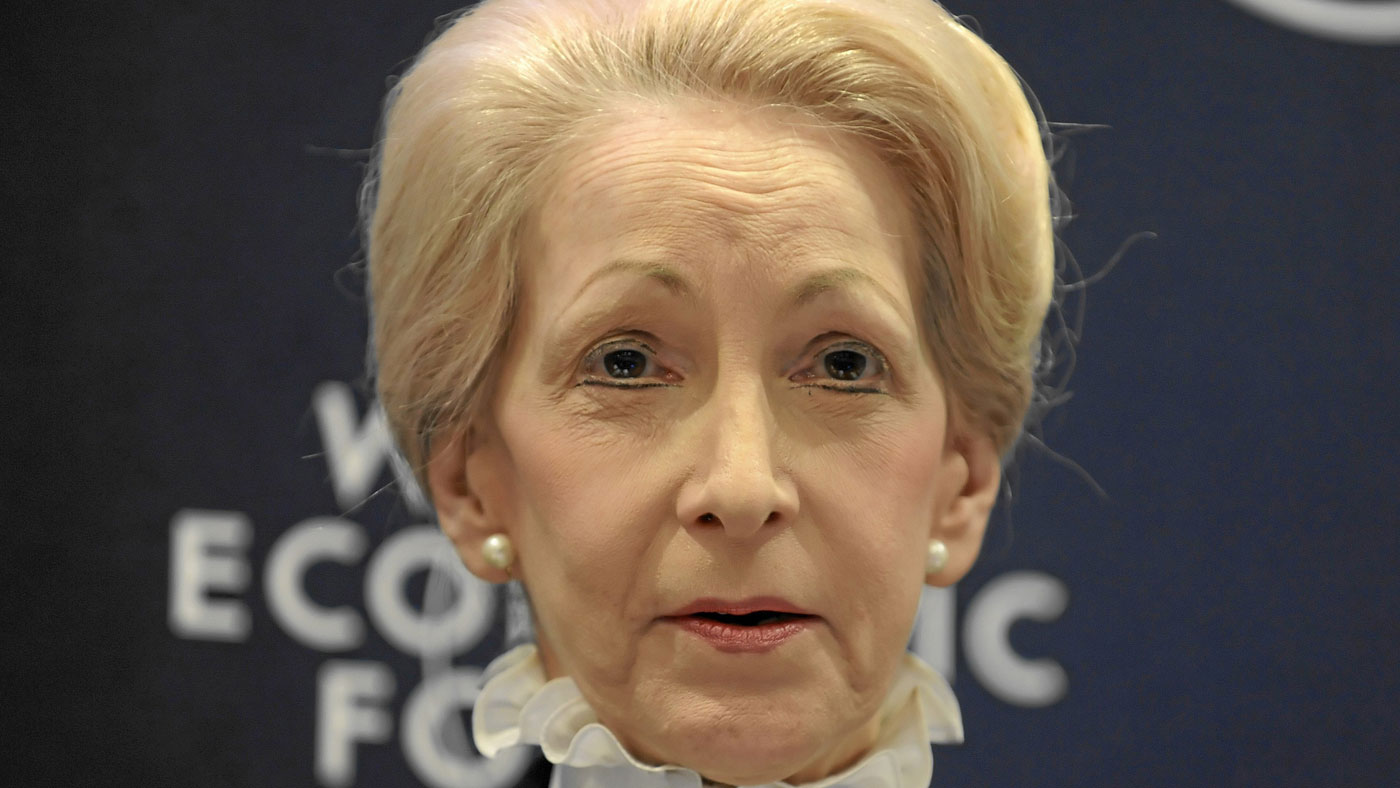IoD chair sparks backlash over 'micro-maternity leave'
Women put their jobs at work by taking so long off after having a baby, says Lady Barbara Judge

A free daily email with the biggest news stories of the day – and the best features from TheWeek.com
You are now subscribed
Your newsletter sign-up was successful
The Institute of Directors' first ever female chair has provoked a backlash from equality campaigners after telling women to take less maternity leave to protect their jobs.
"Long maternity breaks are bad for women," Lady Barbara Judge told the Women in Wealth Forum.
She also praised the US system, which guarantees 12 weeks unpaid leave, says the Daily Telegraph.
The Week
Escape your echo chamber. Get the facts behind the news, plus analysis from multiple perspectives.

Sign up for The Week's Free Newsletters
From our morning news briefing to a weekly Good News Newsletter, get the best of The Week delivered directly to your inbox.
From our morning news briefing to a weekly Good News Newsletter, get the best of The Week delivered directly to your inbox.
In the UK, women can take up to 52 weeks off after giving birth, with statutory maternity pay available for 39 weeks. Under new laws that came into force this year, men can now share this allowance.
Judge, who was off work for 12 days following the birth of her son, cited the example of a friend who took 12 months away from her job at UK consumer goods company Reckitt Benckiser.
However, three months after her friend returned to work, she was the "first" to be made redundant when the financial crisis hit because the company "realised they didn't need her", claimed Judge.
Ben Black, the chief executive of My Family Care, which provides childcare support to employers, agreed. He told iNews: "People were upset with [Judge's] comments because it might not be fair, but it is a practical reality."
A free daily email with the biggest news stories of the day – and the best features from TheWeek.com
However, the likes of Mumsnet, women's rights charity the Fawcett Society and parenting charity NCT criticised her comments, while parenting author Tanith Carey, writing in the Telegraph, said: "The implication that women who use their full allowance are somehow less committed is trickling down through every level."
Maternity leave and the knock-on effects for career progression is often cited as the main reason women earn up to a third less than men on average.
The law protects mothers from being made redundant merely because their work can be covered.
Moreover, campaigners argue the gender pay gap would be closed if men played an active role in early childcare and workplaces offered greater flexibility.
Sarah Jackson, the chief executive of the Working Families charity, said: "All the business evidence shows that well paid, longer maternity leave make for a more successful return to the workforce. You’re more likely to retain your women and see career progression."
Even the Institute of Directors distanced itself from Judge's remarks, telling The Times its members should "do everything they can to make sure having a family is never a barrier to career progression".
-
 House votes to end Trump’s Canada tariffs
House votes to end Trump’s Canada tariffsSpeed Read Six Republicans joined with Democrats to repeal the president’s tariffs
-
 Bondi, Democrats clash over Epstein in hearing
Bondi, Democrats clash over Epstein in hearingSpeed Read Attorney General Pam Bondi ignored survivors of convicted sex offender Jeffrey Epstein and demanded that Democrats apologize to Trump
-
 Are Big Tech firms the new tobacco companies?
Are Big Tech firms the new tobacco companies?Today’s Big Question Trial will determine if Meta, YouTube designed addictive products
-
 Brits keeping 21 million ‘money secrets’ from friends and family, survey reveals
Brits keeping 21 million ‘money secrets’ from friends and family, survey revealsSpeed Read Four in ten people admit staying quiet or telling fibs about debts or savings
-
 London renters swap cramped flats for space in suburbia
London renters swap cramped flats for space in suburbiaSpeed Read New figures show tenants are leaving Britain's cities and looking to upsize
-
 Should the mortgage holiday scheme have been extended?
Should the mortgage holiday scheme have been extended?Speed Read Banks warn that some homeowners may struggle to repay additional debt
-
 RBS offers coronavirus mortgage holidays
RBS offers coronavirus mortgage holidaysSpeed Read Taxpayer-owned bank follows measures taken in virus-struck Italy
-
 What are the changes to National Savings payouts?
What are the changes to National Savings payouts?Speed Read National Savings & Investments cuts dividends and prizes for bonds
-
 China clears path to new digital currency
China clears path to new digital currencySpeed Read Unlike other cryptocurrencies, Beijing’s would increase central control of the financial system
-
 Why are donations surging to the RNLI?
Why are donations surging to the RNLI?Speed Read Charity enjoys flood of funding after criticism for overseas work
-
 PPI deadline day: how to claim
PPI deadline day: how to claimSpeed Read Final chance for consumers to apply for compensation